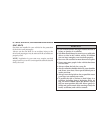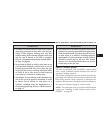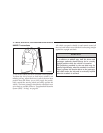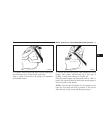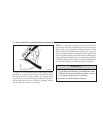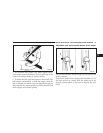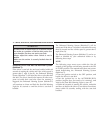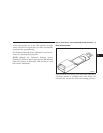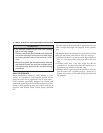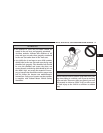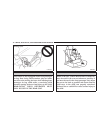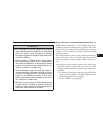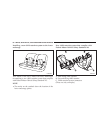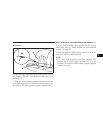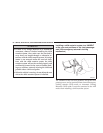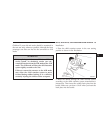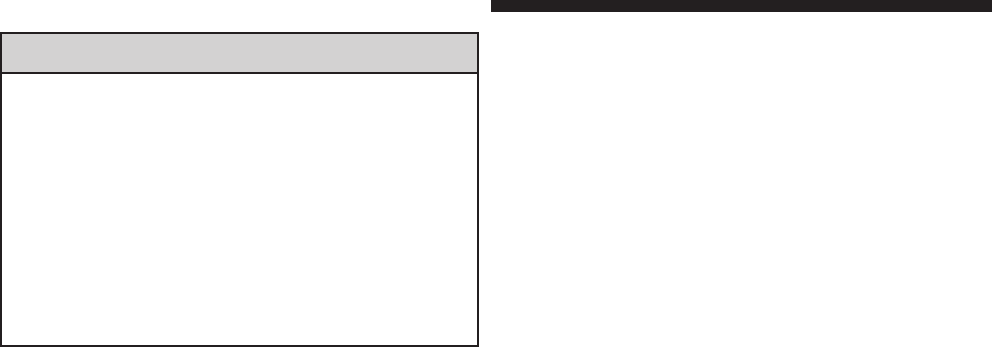
WARNING!
•
The extender should only be used if the existing
belt is not long enough.
Persons who can use the standard seat belt should
not use an extender. Unnecessary use could result
in serious personal injury in the event of a colli-
sion.
•
When not required, the extender must be removed
and stowed because the use of the extender when
not required may deactivate the seat belt locking
mechanism.
CHILD RESTRAINTS
When transporting infants or small children in your
vehicle, an appropriate child restraint system should
always be used. This is required by law in most states.
Child restraints specifically designed for infants and
small children are offered by several manufacturers. Only
choose a child restraint system with a label certifying it
complies with Federal Motor Vehicle Safety Standard
213.
The child restraint system should be appropriate for your
child’s weight and height and properly fit the vehicle’s
seat.
All children should be restrained in a restraint device that
offers the maximum protection for their size and age.
• Children less than 1 year and less than 20 pounds must
ride in a rear-facing child safety seat only in the rear
seat.
• Children older than 1 year who weigh less than 40
pounds or are less than 40 inches tall should be in a
forward-facing restraint in the rear seat.
• Children who weigh more than 40 pounds or are more
than 40 inches tall - regardless of age - should use a
booster seat in the rear seat until the lap/shoulder belt
fits properly.
76 SEATS, SEAT BELTS, CHILD RESTRAINTS AND AIR BAGS



